
Also available from Continuum
Developing a Self-Evaluating School , Paul K. Ainsworth
Not Quite a Teacher, Tom Bennett
The Ultimate Teaching Manual, Gererd Dixie
Get That Teaching Job!
Paul K. Ainsworth

Continuum International Publishing Group
The Tower Building 11 York Road London SE1 7NX | 80 Maiden Lane Suite 704 New York NY 10038 |
www.continuumbooks.com
Paul K. Ainsworth 2012
All rights reserved. No part of this publication may be reproduced or transmitted in any form or by any means, electronic or mechanical, including photocopying, recording, or any information storage or retrieval system, without prior permission in writing from the publishers.
Paul K. Ainsworth has asserted his right under the Copyright, Designs and Patents Act, 1988, to be identified as Author of this work.
British Library Cataloguing-in-Publication Data
A catalogue record for this book is available from the British Library.
ISBN: 978-1-4411-4522-2
Library of Congress Cataloging-in-Publication Data
Ainsworth, Paul, 1973
Get that teaching job! / Paul K. Ainsworth.
p. cm.
Includes bibliographical references and index.
ISBN 978-1-4411-1332-0 (pbk. : alk. paper) -- ISBN 978-1-4411-4522-2 (ebook epub : alk. paper) -- ISBN 978-1-4411-7897-8 (ebook pdf : alk. paper) 1. Teachers--Employment--Great Britain--Handbooks, manuals, etc. 2. Job hunting--Great Britain--Handbooks, manuals, etc. 3. Teaching--Vocational guidance--Great Britain--Handbooks, manuals, etc. I. Title.
LB1780.A47 2012
371.102341--dc23
2011022994
Typeset by Fakenham Prepress Solutions, Fakenham, Norfolk NR21 8NN
To my family, C, J and S for all your support especially with my mad cap job ideas.
Contents
Acknowledgements
Thank you to R, who as a recruitment consultant gave me such great advice so many years ago and to J for taking the risk in supporting my career.
I would like to thank D, an RAF officer who taught me how to prepare for job interviews whether for Initial Officer Training or for a teaching job in such a strategic manner.
I would also like to thank all those colleagues who have been prepared to share their wonderful applications with me and allowed me to use sections of them in the letters in this book. Particular thanks go to Fiona, Becky, Julia, Emily and Kate.
I also wish to thank my colleagues at Belvoir High School alongside whom I have made many appointments, in particular H for keeping me so organized.
Finally I would like to thank the many colleagues at Continuum Press who have worked so hard turning my manuscript into the final book.
 Wherever you see this symbol, go to the companion website to download templates for CVs, letters of application, and other resources to help you to prepare for your interview.
Wherever you see this symbol, go to the companion website to download templates for CVs, letters of application, and other resources to help you to prepare for your interview.
How to use this book
Get That Teaching Job! has been written so it can be read in different ways according to your experience and your needs as a job hunter. You may be beginning the process of applying for jobs and so choose to read this book in a linear fashion from beginning to end: as a result you will build up a full and practical knowledge of how you can develop your job application technique. Or you may have seen a particular job advertisement this week and want advice on how to structure a strong application. You could be in the even better position of having an interview offer for next week and wish to concentrate on honing your interview technique or building your confidence. Perhaps you have a specific concern which has been raised in an interview debrief; this book will help you to address all these issues.
Following the introduction the book is divided into three distinct sections. The first of these (pages 11 to 88) gives advice on the different stages in the process involved in obtaining a teaching job, from choosing the right type of school for you, through structuring and strengthening your application and preparing for and handling the interview itself. The second section (pages 89 to 146) gives advice specific to certain roles . The final section (pages 147 to 166) considers your reflection process after an interview and how, if or when necessary, you can ensure you are an even stronger candidate next time.
If you do not want to read the book from cover to cover, why not read the introduction? You can dip into chapters which immediately take your interest. Each chapter has been divided into three sections:
the basics
the detail
final thoughts.
If you just wish to gain an outline of the chapter and briefly consider if you need to study further, read the basics. The set of questions at the end of these sections will help you relate these initial paragraphs to your own situation and decide if you want to read the detail or move straight onto the next chapter. Within the detail you will find detailed advice about the topic of the chapter. The final thoughts section revisits what you need to know and includes a set of questions enabling you to reflect on the chapter.
Student teachers
You may feel considerable pressure as you begin applying for teaching jobs after spending four years studying and accumulating debt. You may have watched your peers with other degrees having already had a years worth of pay packets with all the benefits that brings. You may also have a limited number of people to ask for advice and your fellow student teachers will have had few learning experiences themselves.
It is important that when you arrive for an interview you have some idea of what to expect. You do not want to spend your first interview feeling out of your depth. Take your time to read this book and reflect on the advice that is given. It is a good idea to read it over a period of time and make notes on the sections that seem important to you. Then when you see a job advert that you wish to apply for return to the sections in the book that help with this and do the same when you are called for interview. If things do not go according to plan, it is important to learn from the experience and this book can help you do that by reflecting on what went wrong or what you could have done to present yourself in a better light.
Main scale teachers
It may be that this is the time in your career when you need to make a change as you are starting to feel a little bit stale in your first job. You may also need a new job for personal reasons; perhaps you want to shorten your commute or move schools so that you are closer to your partner. Or you may have seen an advert for a school that you have always dreamed of.
At this stage in your career you are likely to be far more selective with your applications and hence really want to make sure that any letters you write or interviews you attend show you at your best. In such circumstances you may wish to dip into the chapters that feel most appropriate at the time to you.
Middle leaders
Many teachers wish to apply for a middle leadership post at some stage in their career. There is no doubt that application procedures for middle leadership posts are different from those for main scale posts. Some middle leadership posts can be very competitive indeed with a large number of applicants, whereas you may find a post such as Head of Mathematics attracts few applicants. The pressures are very different as a result. However, it is important to remember that at middle leadership level school leaders will be prepared not to appoint if there if there is no-one suitable.
Next page
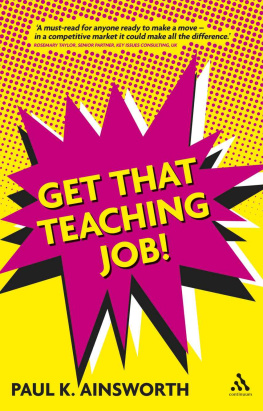
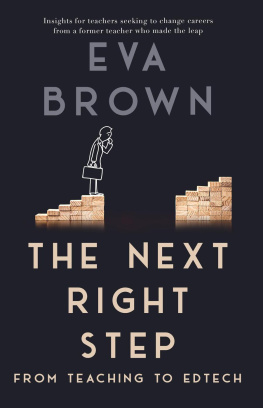
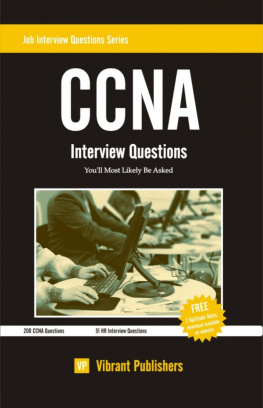
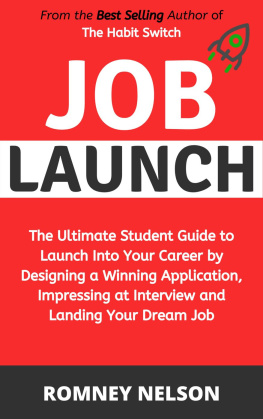
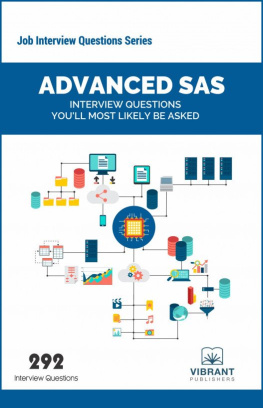
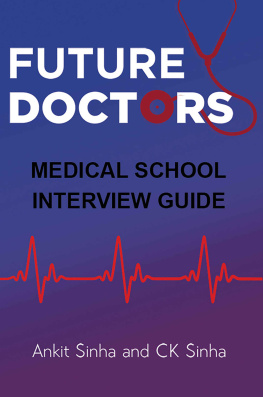
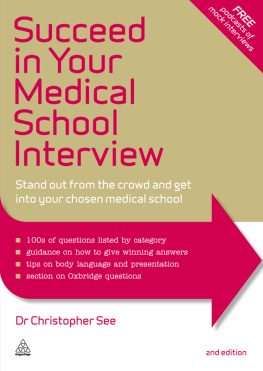
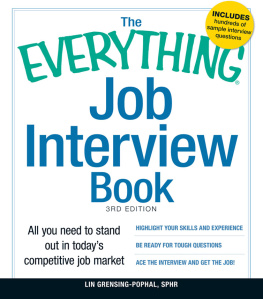
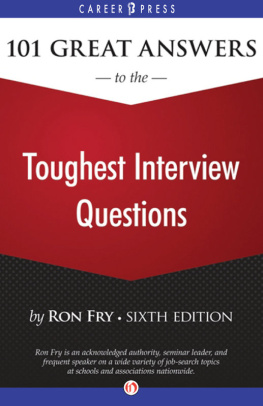

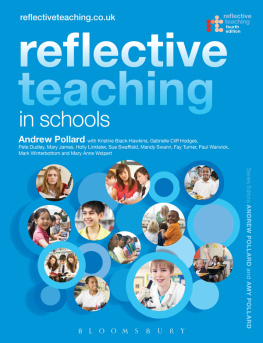
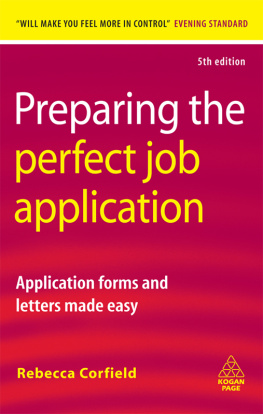



 Wherever you see this symbol, go to the companion website to download templates for CVs, letters of application, and other resources to help you to prepare for your interview.
Wherever you see this symbol, go to the companion website to download templates for CVs, letters of application, and other resources to help you to prepare for your interview.